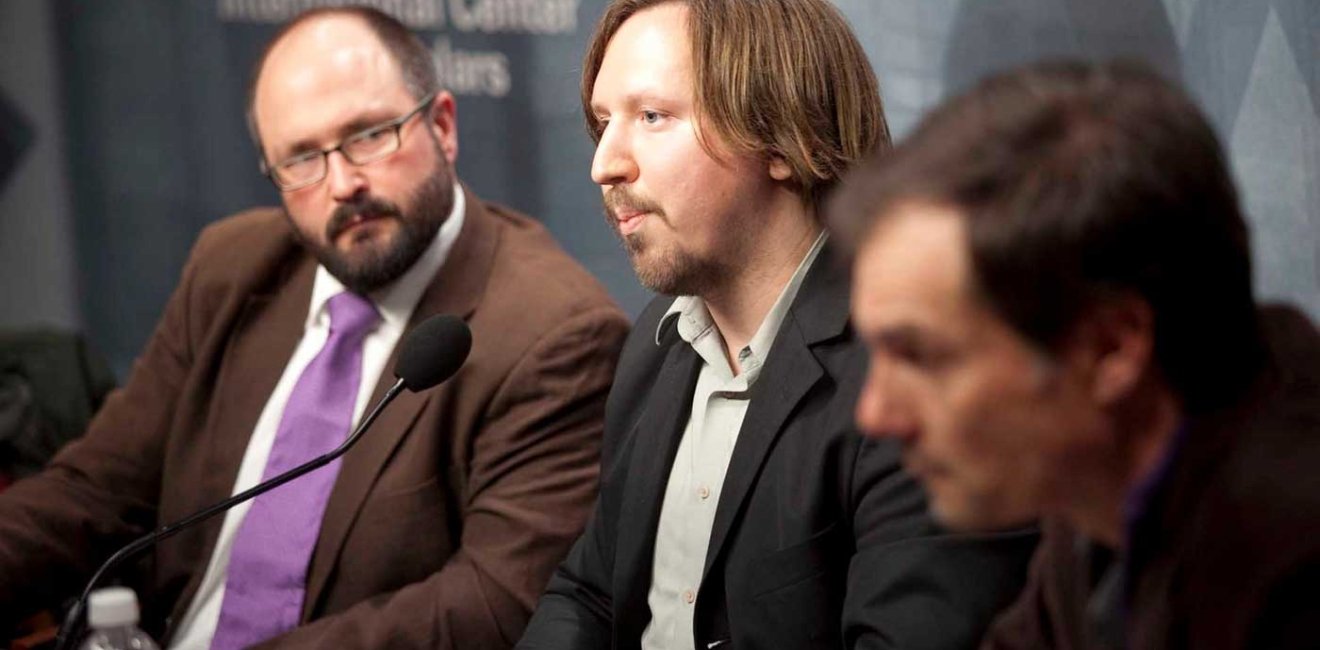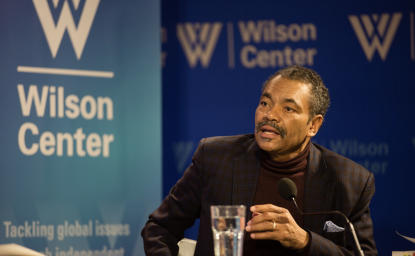Dr. Piotr H. Kosicki: 1989 Revolutions and the Fall of Communism
Wilson Center Alum of the Global Europe Program Dr. Piotr H. Kosicki recently published a new book entitled "The Long 1989: Decades of Global Revolution."

A blog of the Wilson Center
Wilson Center Alum of the Global Europe Program Dr. Piotr H. Kosicki recently published a new book entitled "The Long 1989: Decades of Global Revolution."

Dr. Piotr H. Kosicki, Assistant Professor of History at the University of Maryland in College Park and a Wilson Center Alum of the Global Europe Program, recently published a new book entitled The Long 1989: Decades of Global Revolution.
Kosicki served three terms at The Wilson Center in 2012, 2013, and 2015 as the Title VIII Summer Research Scholar, researching 20th-century transnational history in Europe. Participating in multiple Wilson Center events and writing several publications, his research particularly focuses on religion, politics, and the history of ideas. His other research interests include thought and politics of John Paull II, the Catholic Church’s place in the Cold War, European historical memory of mass violence, and the revolutions of 1989 in global perspective, which is the subject of his latest book.
The book, a compilation of essays by multiple scholars, contains three parts: “Politics and Policies,” “Ideas and Ideologies,” and Myths and Mythmaking.” Each essay considers how the fall of communism in Europe through the Revolutions of 1989 has had lasting effects in countries all over the world regarding global thought about protests and revolution. Kosicki edited the book alongside Kyrill Kunakhovich, Assistant Professor of History at the University of Virginia.
Some other notable publications by Kosicki include an edited volume entitled Re-mapping Polish-German Historical Memory: Physical, Political, and Literary Spaces (Bloomington, 2011) and a book entitled Catholics on the Barricades: Poland, France, and "Revolution," 1891-1956 (Yale University Press).
Over twenty of his articles and chapters have been published in English, French, German, Polish and Slovak and issued in journals like Contemporary European History, East European Politics and Societies, Modern Intellectual History, Slavic Review, and Vingtième Siècle. Revue d’histoire. He occasionally writes for Eurozine, Gazeta Wyborcza, The Nation, The New Republic, and The TLS and contributes regularly to Kultura Liberalna and to Więź.
A recipient of a Princeton University Ph.D., Kosicki has also been awarded many prestigious honors including a Fulbright Fellowship and research grants from the German Historical Institute in Warsaw. Prior to his career at the University of Maryland, Kosicki taught at American University, the Cooper Union, Princeton University, Sciences Po, the University of Virginia, and Warsaw University.

The Global Europe Program is focused on Europe’s capabilities, and how it engages on critical global issues. We investigate European approaches to critical global issues. We examine Europe’s relations with Russia and Eurasia, China and the Indo-Pacific, the Middle East and Africa. Our initiatives include “Ukraine in Europe”—an examination of what it will take to make Ukraine’s European future a reality. But we also examine the role of NATO, the European Union and the OSCE, Europe’s energy security, transatlantic trade disputes, and challenges to democracy. The Global Europe Program’s staff, scholars-in-residence, and Global Fellows participate in seminars, policy study groups, and international conferences to provide analytical recommendations to policy makers and the media. Read more



